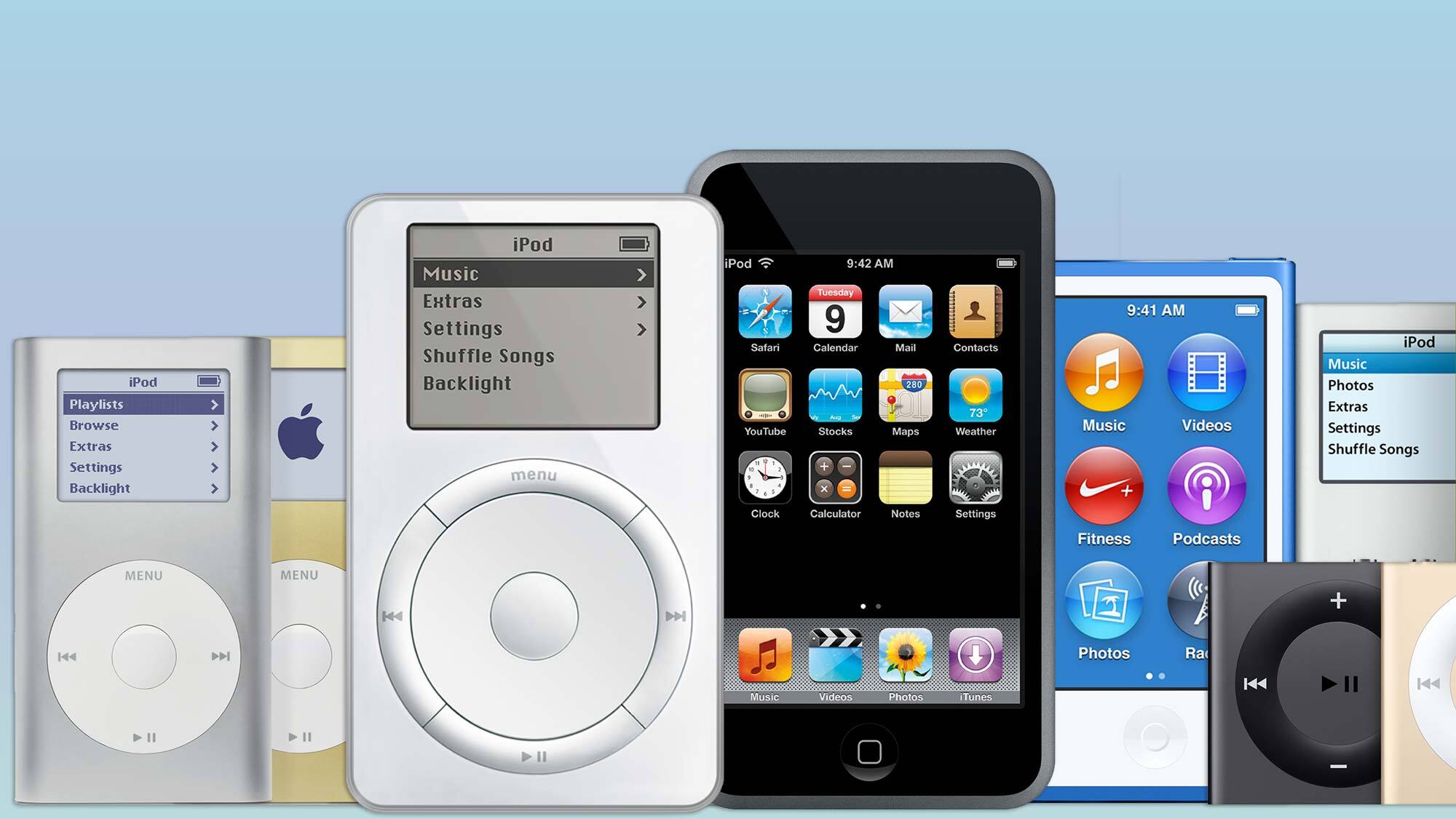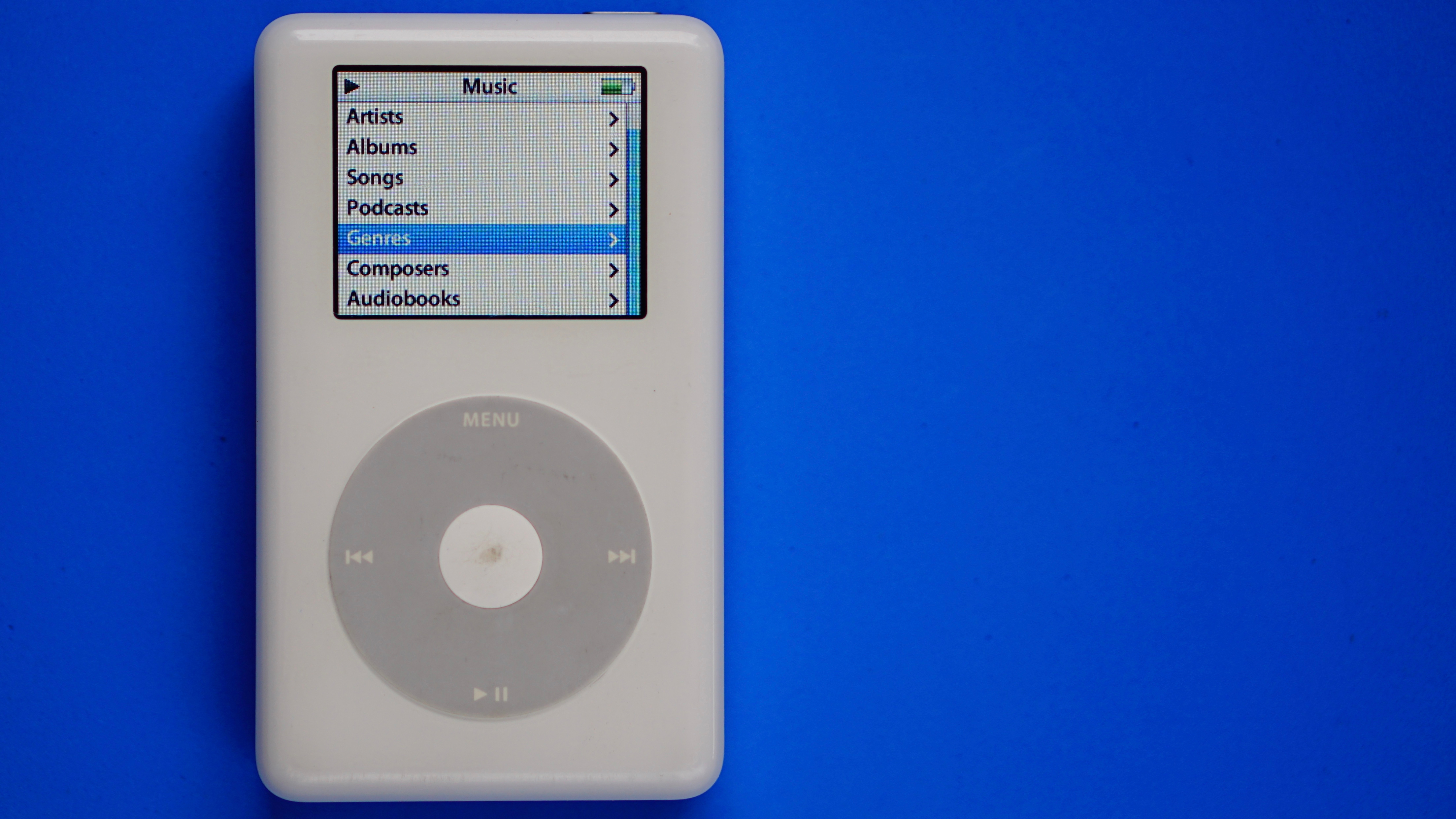RIP iPod: Apple just pulled the plug on iPod touch
The last iPod is officially out of action

The iPod revolutionized digital music, but since others (namely Spotify) have moved the industry to streaming, we're not surprised to be writing its memorial today. While you might think that Apple killed off the iPod long ago, Apple officially announced the end of the brand today (May 10).
Of course, Apple did so in its own unique way, with a post to the Apple Newsroom announcing that "iPod touch will be available while supplies last." Which, we guess, is a nicer way of saying "we won't make the iPod touch anymore."
If you want to buy one of the last iPods, your best bet right now is to go on Amazon, where the iPod touch is $10 off, at $189. Apple.com has a buy button for the iPod touch, but it leads to a broken page as of this writing.
The 7th gen iPod touch (released May 28, 2019) is the final iPod, but it's arguably an iPod only in name and not spirit. You don't upload a vault of MP3s from your computer to it as you did with iPods back in the day; instead it's used to listen to tunes from Apple Music (which could have been uploaded to the iCloud Music Library) or any of its streaming music competitors.
iPod timeline 2001 - 2022

iPod Classic (2001): Packed over 1,000 songs (up to 10GB) into one pocket-sized chassis.
iPod mini (2004): A much smaller (and colorful) iPod with 4GB of storage.
iPod nano (2005): Added a color display, and Steve Jobs had it hidden in the small pocket of his jeans at the product reveal.
Sign up to get the BEST of Tom's Guide direct to your inbox.
Get instant access to breaking news, the hottest reviews, great deals and helpful tips.
iPod shuffle (2nd gen., 2006): Introduced the clip-on design.
iPod touch (2007): The first iPod with the iPhone's multi-touch display
iPod nano (7th gen., 2012): The thinnest iPod ever at 5.4mm.
iPod touch (7th gen, 2019): The final iPod, supported Group FaceTime and ran on the A10 Fusion chip.
Analysis: The iPod's legacy and what could come next
The iPod, the first computer I ever carried in my pocket, likely changed how many viewed technology. While it was not the first MP3 player, Apple's iPod popularized the notion of carrying around your whole music library on the go. In college, we had "DJ battles" that required no vinyl collections, all you needed was your MP3 player full of tunes, and the AUX cable to plug into your headphone jack.
Those iPods were discontinued years ago, with the iPod Classic fading away in Sept. 2014 and the Nano and Shuffle getting discontinued in July 2017. All of these iPods disappeared for an easy-to-understand reason: they were obviated by the iPhone.
The iPod touch differs from the original iPod primarily because it's more like an iPhone that doesn't have a cellular connection (which made it ideal for some customers, particularly kids). And so the death of the iPod touch has its own unique issue.
Apple no longer offers a Wi-Fi-only device for listening to music, playing iOS games and using apps. This specific use case made the iPod touch an ideal device for parents who wanted to give their kids some of the iPhone features without giving them a smartphone with a monthly cellular bill.
This opens up the field for others to make their own iPod-like devices (though companies should think twice, as the tech graveyard is littered with also-ran MP3 players such as the Zune, Archos Jukebox and Creative Nomad). The Spotify Car Thing shows that company's interest in making hardware, and we wouldn't exactly be shocked to see it try and fill the void.
But until such a device happens, and even probably after it arrives, the iPod will stand alone in history as the MP3 player. Sorry, Zune.

Henry is a managing editor at Tom’s Guide covering streaming media, laptops and all things Apple, reviewing devices and services for the past seven years. Prior to joining Tom's Guide, he reviewed software and hardware for TechRadar Pro, and interviewed artists for Patek Philippe International Magazine. He's also covered the wild world of professional wrestling for Cageside Seats, interviewing athletes and other industry veterans.
